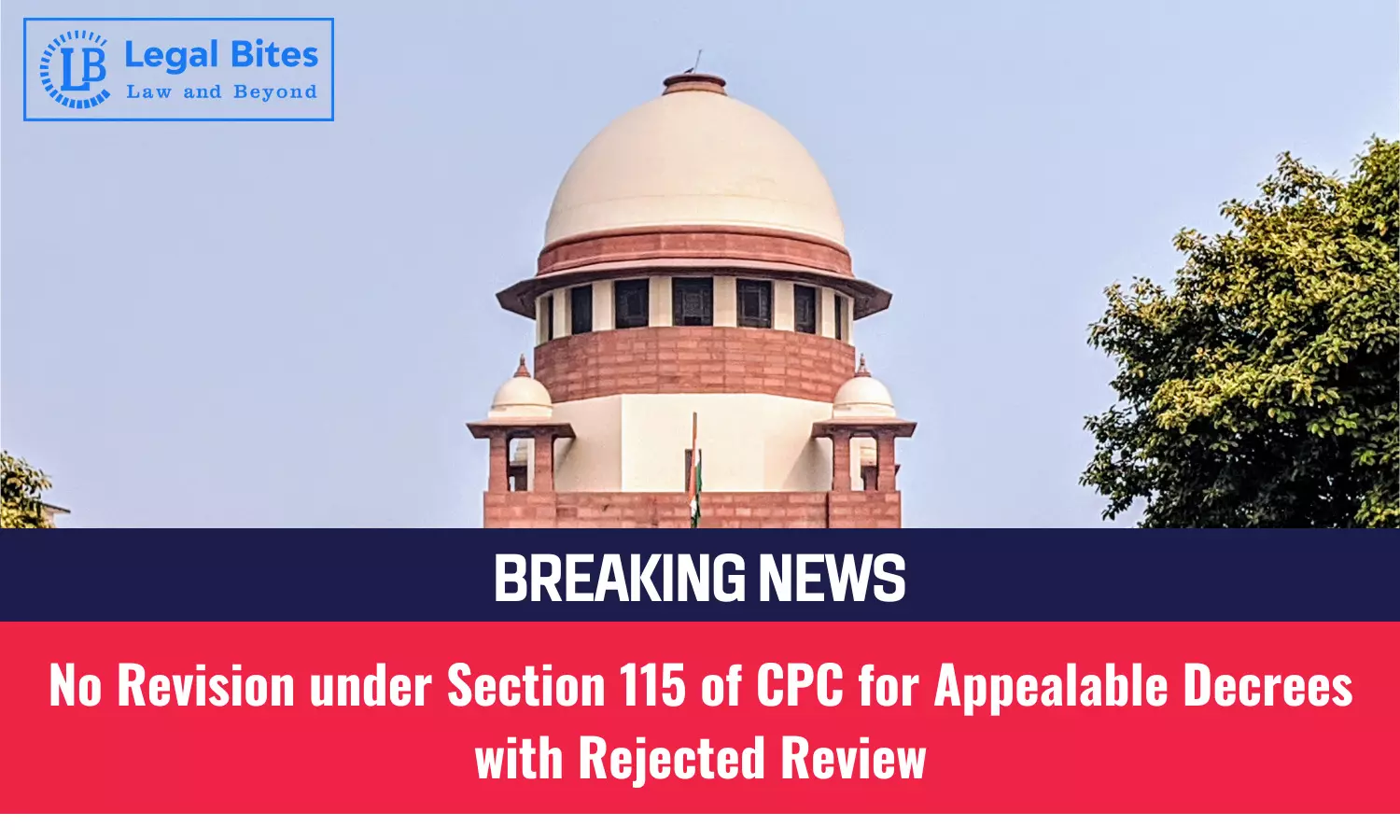Supreme Court Ruling: No Revision Under Section 115 of CPC for Appealable Decrees with Rejected Review
The Supreme Court of India has issued a significant ruling, emphasizing that when an appealable decree is issued in a lawsuit, Section 115 of the CCPC should not be used.

Supreme Court Ruling: No Revision Under Section 115 of CPC for Appealable Decrees with Rejected Review
The Supreme Court of India has issued a significant ruling, emphasizing that when an appealable decree is issued in a lawsuit, Section 115 of the Civil Procedure Code (CPC) should not be used for revision against an order that rejects a review on its merits.
In a specific case, the Madras High Court, Madurai Bench, had allowed the revision of the respondent (plaintiff) and overturned the decision of the Court of First Additional Sub Court.
The two-judge Bench, consisting of Justice P.S. Narasimha and Justice Manoj Misra, declared that
"where an appealable decree has been issued in a lawsuit, no revision should be entertained under Section 115 of the CPC against an order that rejects a review of that decree on its merits."
They further stated that the proper recourse for a party whose review application has been rejected on appealable decree grounds is to file an appeal against that decree. If the appeal becomes time-barred in the meantime, the time spent pursuing the review application diligently can be condoned by the court hearing the appeal. The Bench expressed that the High Court should not have entertained the respondent's revision against the rejection of her review application for the appealable decree.
The respondent initiated an Original Suit seeking exclusive ownership of a property. In the alternative, she requested that her share in the property be declared as one-sixth if the court found her not to be the exclusive owner.
The plaintiff claimed to have purchased the property from her grandmother through a sale deed. The defendant (appellant) was the daughter-in-law, and the other defendants were her children. The husband of the defendant acquired a gift deed from the plaintiff's grandmother, which was alleged to have been obtained through undue influence and coercion and was never acted upon.
Alternatively, it was argued that if the gift deed were valid, the plaintiff's grandmother would have a one-sixth share in the property, which would pass to the plaintiff under the sale deed. The Trial Court invalidated the gift deed and validated the sale deed, prompting the plaintiff to file a review application, which was rejected.
Subsequently, the High Court, invoking Section 115 of the CPC, entertained the revision and granted it.
The Supreme Court noted that when a review is allowed and the decree or order under review is reversed or modified, it becomes a composite order. This means that the court not only cancels the earlier decree or order but, simultaneously, issues another decree or order or modifies the one issued earlier.
The Court explained that if the revisional court sets aside or modifies a trial court's decree, the original decree of the trial court merges with the one passed by the revisional court. Consequently, the right of the party aggrieved by the trial court's decree to file an appeal is affected. In essence, if the revisional court's order stands, and an appeal would typically be filed against the modified decree, the right to appeal for the aggrieved party is seriously prejudiced.
Therefore, the Supreme Court allowed the appeal and annulled the High Court's order.

